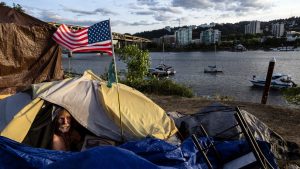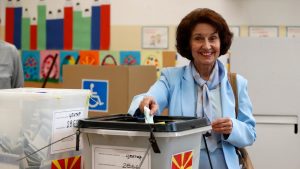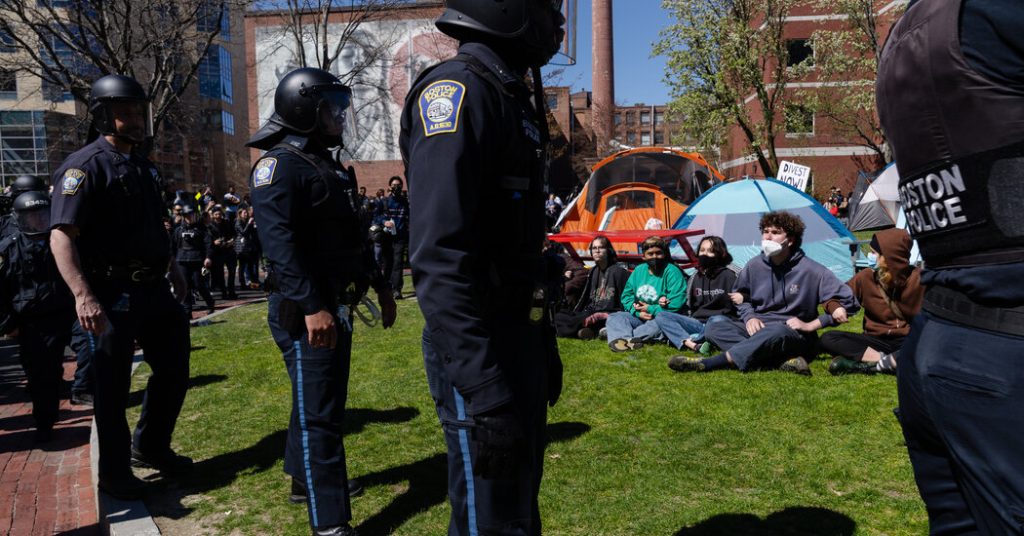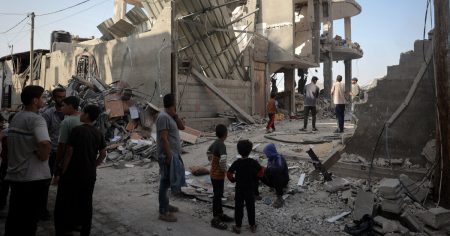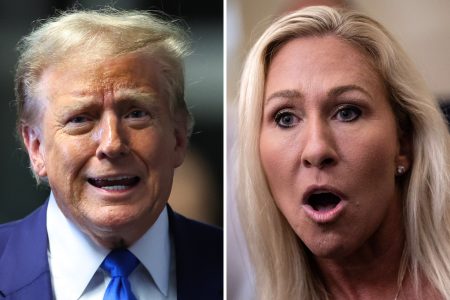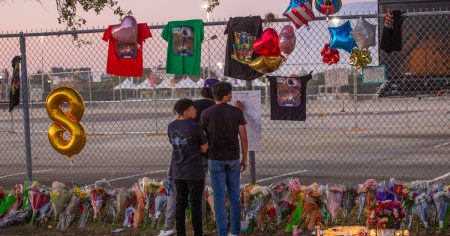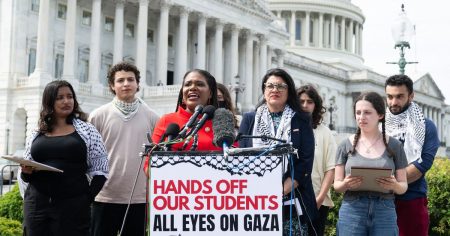In recent days, colleges across the United States have been grappling with a wave of student activism in response to Israel’s military campaign in Gaza. This has led to confrontations between protesters and university administrators over whether to involve law enforcement and the handling of these situations. The actions of the police in responding to the protests have generated controversy, with some instances leading to mass arrests, while others have seen police interventions stopped at the last moment. The role of police in handling student protests on college campuses has come under scrutiny, with questions about appropriate responses to demonstrations and concerns about balancing student safety with academic freedom.
At Northeastern University, a group of pro-Palestine protesters faced a tense standoff with riot police before the officers unexpectedly withdrew, leaving some demonstrators confused and relieved. The exchange highlighted the challenges universities face when deciding whether to call in law enforcement during protests, especially when balancing potential harm to students and the optics of police intervention. Similar scenes unfolded at other institutions like Emory University, where arrests were made following a clash between police and protesters. The incidents have put a spotlight on the varying responses from college administrators to student activism, as they navigate the complexities of maintaining campus order while respecting freedom of expression.
The decision-making process behind police involvement in controlling protests on college campuses has been scrutinized, with some administrators facing criticism for their handling of the situations. At Northeastern University, conflicting reports emerged about who directed the police response during the pro-Palestine protest, raising questions about accountability and communication between authorities and demonstrators. The actions by law enforcement, including dawn arrests and the dismantling of protest encampments, have generated mixed reactions from students and faculty. The incidents underscore the challenges of managing student activism and ensuring a safe and inclusive campus environment amid heightened tensions.
The escalation of pro-Palestine protests on campuses across the country has sparked debates within university communities about the appropriate response to demonstrations and the use of police force. While some colleges have taken a proactive approach by restricting access to campus grounds and enforcing disciplinary actions, others have faced criticism for involving law enforcement or failing to protect student protesters. The ongoing activism has also raised concerns about potential antisemitism and safety risks for Jewish students, leading to contentious campus dynamics and conflicting views on how best to address the issues at hand. The balancing act between upholding academic freedom and maintaining order on campus has created complex challenges for university leaders.
The differing responses from universities to student protests over the Israel-Gaza conflict reflect the broader complexities of managing campus activism and navigating external pressures. Administrators have grappled with decisions about calling in law enforcement, enforcing campus rules, and striking a balance between conflicting viewpoints within the university community. The actions taken by university officials, including arrests and communication with protesters, have drawn scrutiny and varying degrees of support from students, faculty, and external stakeholders. The incidents underscore the delicate nature of handling contentious issues and upholding campus values in the face of heightened tensions and divergent interests.
The role of university leaders in responding to student protests, particularly in the context of broader societal and political dynamics, presents a formidable challenge for those tasked with maintaining campus order and respecting academic freedom. The decisions to involve law enforcement, enforce campus regulations, and address competing demands from stakeholders such as politicians, alumni, and donors require careful deliberation and risk assessment. University presidents and administrators face pressures from multiple sources, including students, faculty, and external influencers, as they navigate the complexities of managing a crisis situation. The ongoing protests over the Israel-Gaza conflict serve as a microcosm of the broader challenges facing higher education institutions in addressing social and political issues while upholding their mission and values.
